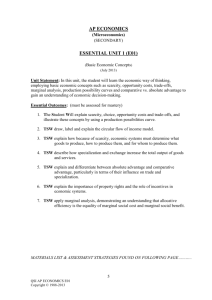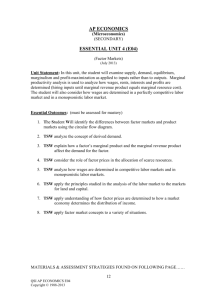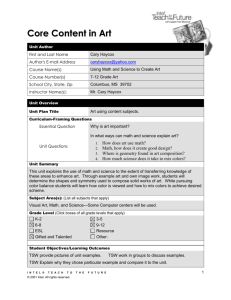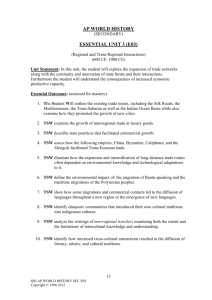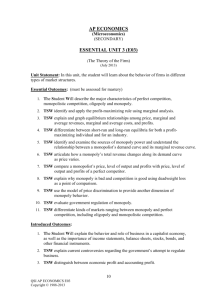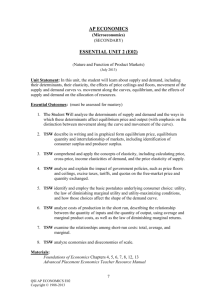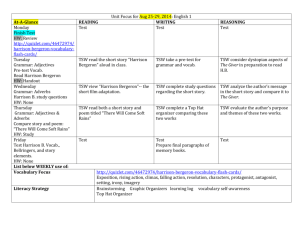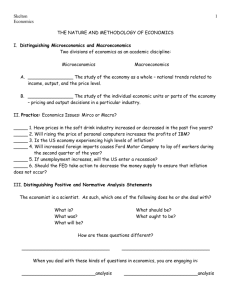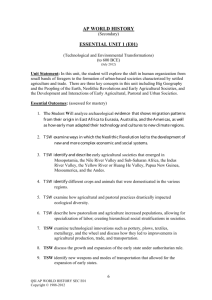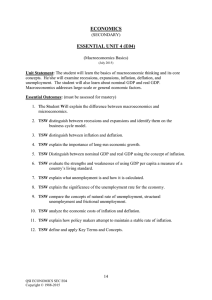E06 AP Economics
advertisement
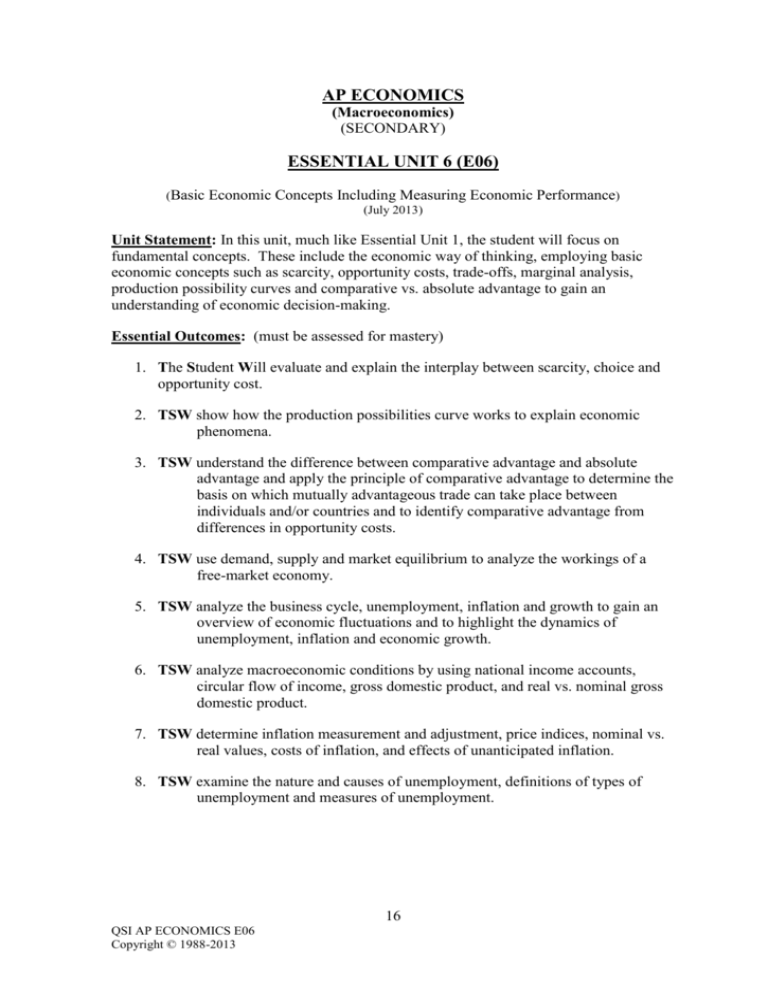
AP ECONOMICS (Macroeconomics) (SECONDARY) ESSENTIAL UNIT 6 (E06) (Basic Economic Concepts Including Measuring Economic Performance) (July 2013) Unit Statement: In this unit, much like Essential Unit 1, the student will focus on fundamental concepts. These include the economic way of thinking, employing basic economic concepts such as scarcity, opportunity costs, trade-offs, marginal analysis, production possibility curves and comparative vs. absolute advantage to gain an understanding of economic decision-making. Essential Outcomes: (must be assessed for mastery) 1. The Student Will evaluate and explain the interplay between scarcity, choice and opportunity cost. 2. TSW show how the production possibilities curve works to explain economic phenomena. 3. TSW understand the difference between comparative advantage and absolute advantage and apply the principle of comparative advantage to determine the basis on which mutually advantageous trade can take place between individuals and/or countries and to identify comparative advantage from differences in opportunity costs. 4. TSW use demand, supply and market equilibrium to analyze the workings of a free-market economy. 5. TSW analyze the business cycle, unemployment, inflation and growth to gain an overview of economic fluctuations and to highlight the dynamics of unemployment, inflation and economic growth. 6. TSW analyze macroeconomic conditions by using national income accounts, circular flow of income, gross domestic product, and real vs. nominal gross domestic product. 7. TSW determine inflation measurement and adjustment, price indices, nominal vs. real values, costs of inflation, and effects of unanticipated inflation. 8. TSW examine the nature and causes of unemployment, definitions of types of unemployment and measures of unemployment. 16 QSI AP ECONOMICS E06 Copyright © 1988-2013 Materials: Foundations of Economics Chapters 1, 3, 4, 20, 21, 22, 23, 27, 28 Advanced Placement Economics Teacher Resource Manual Websites: Mandatory Assessments: 1. AP style multiple-choice exams must be used. The majority of the questions should require students to use higher order thinking skills such as synthesis and evaluation in which the student must combine knowledge and skills across the unit. 2. Students must be required to complete the Examination Analysis form that is contained as an attachment to the Course Outcomes. Students who have taken the class report the value in helping them properly. 3. Teacher generated or AP published free-response questions. Free response questions can be taken directly from the AP Central site with rubrics already created to use as an assessment tool. Optional Assessments 1. Create flash cards for the unit. Students have reported after the AP Exam that they wish this was mandatory. Teachers may want to take this student feedback into account in designing their teaching for this and all other essential units. 2. Students present their approach to a free-response question to the class. This holds students accountable demonstrating the ability to dissect free-response questions and for developing an outline to answer the question. The focus is on students’ learning to answer the question asked. Teacher to Teacher: 1. Students should take a diagnostic assessment at the beginning of the course. The diagnostic assessment is helpful because students see their initial areas of strength and weakness. In addition, it gives them a lowstakes opportunity to try out an AP exam. 2. ESOL students can do well on the AP Psychology Exam if they do well on the multiple choice section and learn to dissect the free-response questions to ensure their answers reflect key points. This exam requires content knowledge and an ability to connect content rather than fluid literary skills. In other words, it emphasizes content rather than the ability to write well. 3. It is important to emphasize that students learn the language of psychology. In that regard it is highly recommended that students use flash cards to help them memorize these terms. Students report that creating their own flash cards is helpful in learning terms. 17 QSI AP ECONOMICS E06 Copyright © 1988-2013
